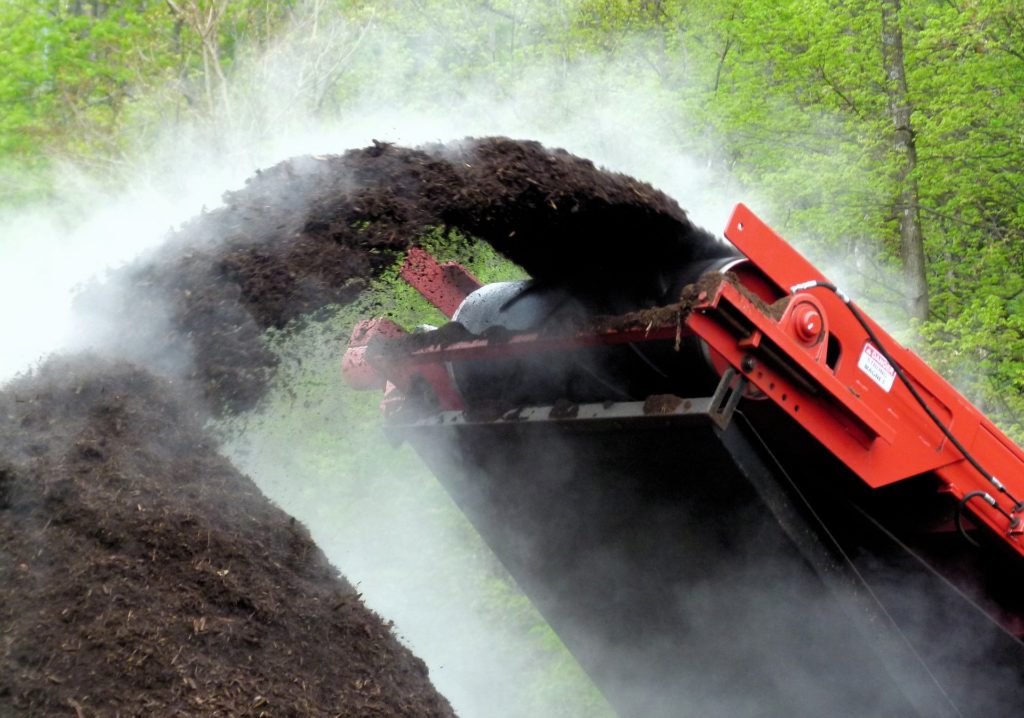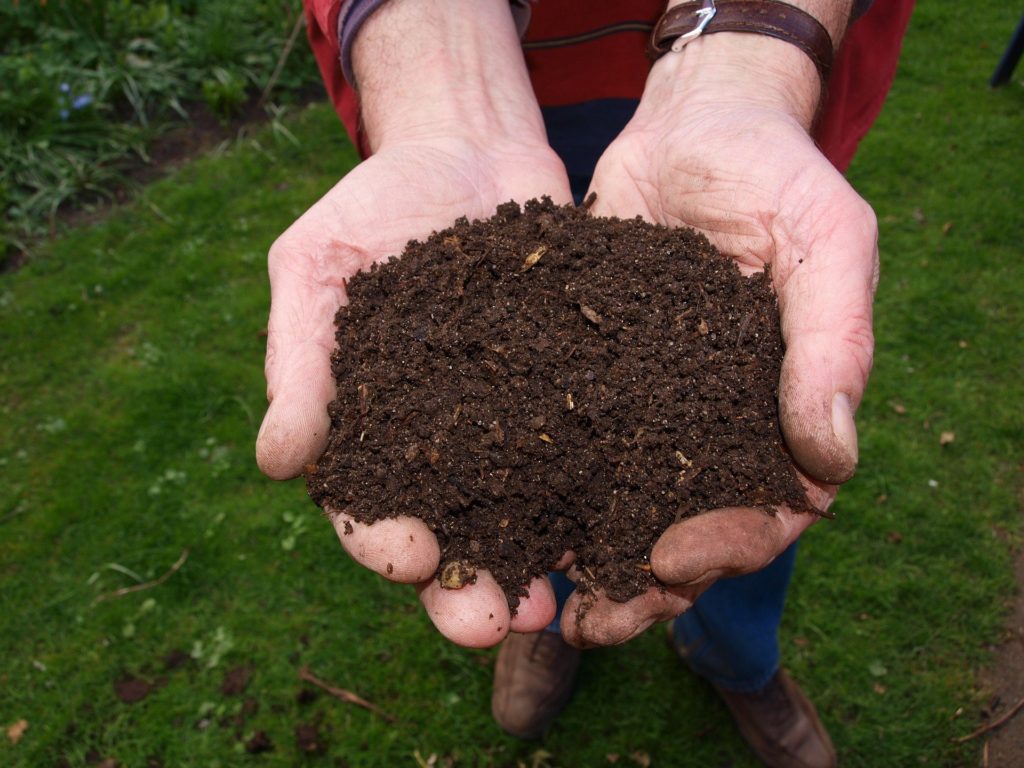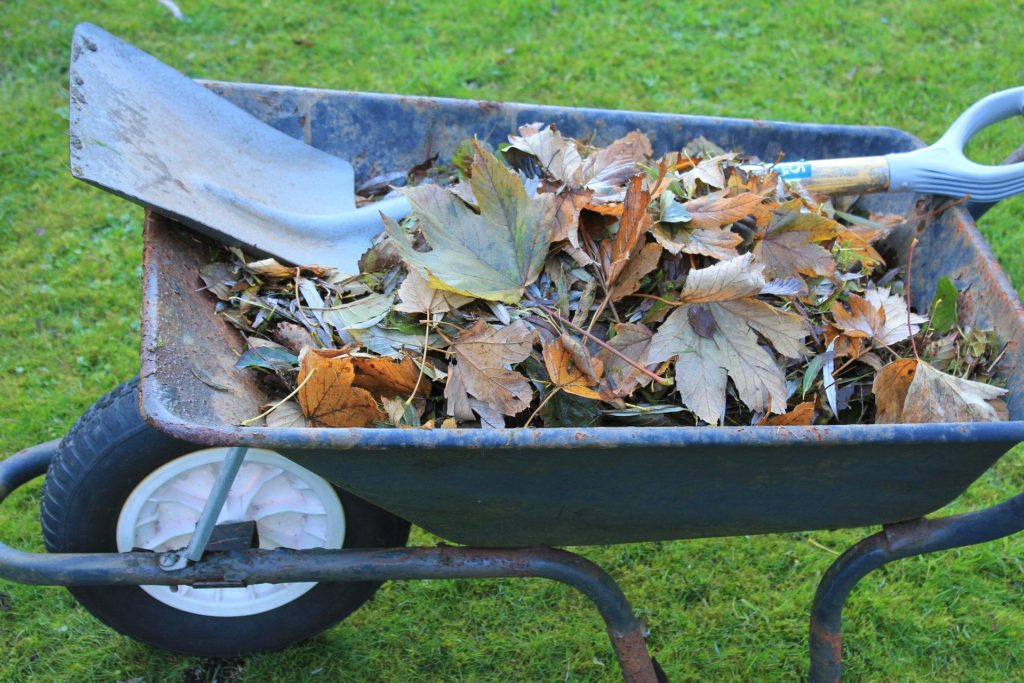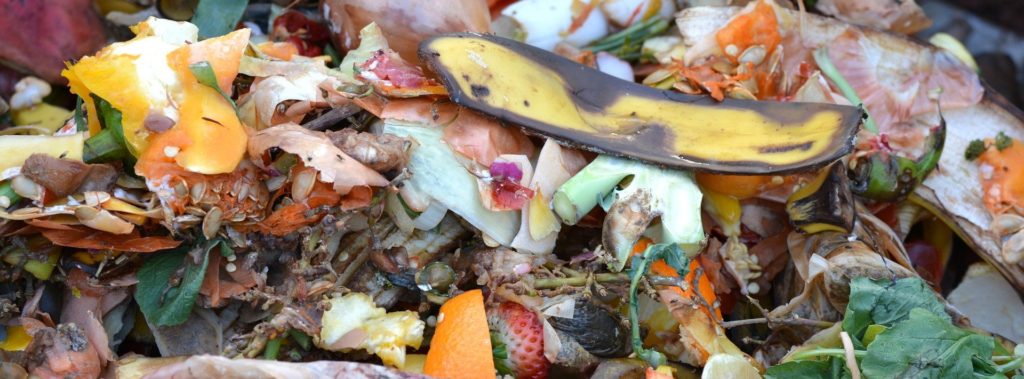Americans waste 30-40% of the food that we produce. And where the waste goes is an important question because where you put it can either help or harm the planet. There’s no in between.
You might send it to the landfill
One way to get rid of your old vegetables and scraps is into the trash to be taken to the landfill. What happens at the landfill may be different than you think.
Since the landfill gets piled pretty deep and contains lots of stuff that’s never going to decompose, the food waste that ends up there doesn’t have what it needs to biodegrade. The microbes that do the degrading need oxygen from the air; they’re aerobic microbes. They turn food waste into soil-like substances and they’ll release carbon dioxide (CO2), like we do when we breathe out. But not for long.
With no fresh air coming in, the waste soon switches to anaerobic decomposition, which means that it degrades with microbes that don’t need oxygen.
The problem here is that instead of emitting CO2, the anaerobic microbes emit methane. And while CO2 is a greenhouse gas, methane is 28 times worse. That is, it holds 28 times more heat than CO2. So this is not a good way to get rid of our food waste.
And that’s too bad because there are 30,630,000 tons of food waste going to the landfills in the US alone every year, according to the EPA. This makes landfilled food waste a major greenhouse gas source.
A small portion of our food waste gets composted. And this offers a great solution.
In 2009 San Francisco launched a mandatory recycling and composting ordinance. The compostables are collected along with green waste and gets hauled to a municipal composting center. The resulting compost is used by area farmers and wineries. Overall, by 2012 the city had reached an 80% diversion rate of trash.

Here in Nevada County we have a municipal composting program coming for the larger processors of food waste. See Waste Management, Nevada County’s home page and scroll down just a bit to find out more.
Or does it go down the drain?
You may get rid of some of your food waste down the garbage disposal. What happens then is that it goes to the wastewater treatment plant and contributes to the bio-solids there. Methane is generated from the bio-solids. Some treatment plants collect the methane to burn for other energy purposes, but much is still not captured.
And if you have a septic tank, RotoRooter advises against putting your food waste down the garbage disposal.

You can compost it!
This disposal method is a win-win for everyone. Composting lets microbes work to break down your food scraps and a lot of other organic matter you have around. You make sure they have their food (your scraps and other organic matter), the right amount of moisture, fresh air, and that it’s not too hot or too cold.
What compost does for you is to create a fertile amendment for your garden soil for more and healthier vegetables, herbs, and flowers. But it’s not so much a source of nutrients for your plants. It does have some of those.
Compost’s chief benefit is to supply microbes that will flourish in your soil and keep breaking down organic matter to make new nutrients readily available to your plant roots.
After all the decay that happens, a series of chemical reactions occurs and a mixture of molecules results. This mixture is called humus. One of the types of molecules that gets produced from this process is humin, a very large molecule full of carbon. Since humus is the end result of all the decay, it will not break down any further. This means that humus stays in the soil for hundreds or even thousands of years.
So, composting food waste helps lock up carbon into the soil. Taking it from carbon dioxide in the atmosphere— the major greenhouse gas, through the growth of plants, and turns it into carbon in the soil to stay for a long, long time. So, if you compost your food waste, and place it onto your soil, you are not only benefiting from greater soil health and garden productivity, but you’re also helping in the fight against climate change!
How do you make compost?
There are so many ways! They can be super simple to more involved. You’ll get more compost faster if you choose a method that requires more attention.

Basically, here’s how to make it. The organic matter you need may be considered brown or green. The browns are higher in carbon and lower in nitrogen. Browns are things like fallen leaves, perfect for fall collection, small sticks, some papers, straw, and the like.
Greens are higher in nitrogen and usually also water content. They include food scraps (generally vegetative only), old vegetable plants, and small prunings.
Everything already has microbes on them. Putting them together and adding just the right amount of moisture will let the microbes flourish and break down the plant materials. Turning the compost or otherwise aerating it keeps a supply of oxygen in the pile. If it doesn’t get replenished the pile could go anaerobic. Which, as I noted earlier, releases methane. Which we don’t want.
But compost can be simpler by using a cold pile which breaks down slower. You can even use a bucket in a garage. Or you can try worm composting. Getting fresh worm castings is one of the best things you can do for your plants, even your houseplants. And it can be done indoors.
There are many composting resources
There are so many resources to learn more about all the methods. For starters, I suggest the Master Gardeners website, ncmg.ucanr.org. Look at the Compost is the Gardener’s Best Friend video from Aug. 22, 2020, plus more of their resources.
There are loads of YouTube videos and books that show how to compost, some methods for if you don’t have a yard. Worm composting will give you the very best fertilizer for your potted plants and it can be done in a mudroom, porch, or garage. And bucket composting will give you something to add to even a tiny outdoor garden space.
Any composting keeps food waste out of the landfill which will do much more damage to the planet. And while it sounds like a drop in an ocean, it’s the collective small actions of individuals that speak clearly and can make a difference to help our planet.

